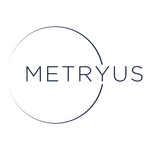Description

Adysoft Nidhi

Ivypay
Comprehensive Overview: Adysoft Nidhi vs Ivypay
Navigating the landscape of financial technology platforms like Adysoft Nidhi and Ivypay requires an understanding of their distinct functions, target markets, market share, user base, and key differentiating factors.
a) Primary Functions and Target Markets
Adysoft Nidhi
- Primary Functions: Adysoft Nidhi is a specialized software designed for managing Nidhi companies in India. Its core functionalities include handling member schemes, fixed deposits, recurring deposits, loan management, and financial reporting. The platform is tailored to streamline operations in compliance with the regulatory requirements specific to Nidhi companies, which are non-banking financial institutions (NBFCs) aimed at cultivating the habit of savings amongst its members.
- Target Markets: The primary target market for Adysoft Nidhi is Nidhi companies and small to medium-sized financial institutions in India looking for efficient management software that adheres to local compliance regulations and enhances operational efficiency.
Ivypay
- Primary Functions: Ivypay operates as a payment platform, offering services that might include cryptocurrency to fiat currency conversion, facilitating transactions using traditional banking infrastructure, or enabling cross-border payments. While specific features can vary, Ivypay typically focuses on integrating blockchain with conventional finance.
- Target Markets: Ivypay’s target market includes cryptocurrency users, international businesses, and fintech enthusiasts who desire seamless integration between digital and traditional currencies. Their audience often spans globally due to the universal nature of blockchain technologies.
b) Market Share and User Base
- Adysoft Nidhi: As a niche software solution designed for a specific financial institution type (Nidhi companies), its market share is largely stable within this specific sector in India. The user base is relatively smaller given the specialized nature of Nidhi companies compared to more general financial software solutions.
- Ivypay: Typically operating in a broader fintech landscape, Ivypay might enjoy a more diverse and potentially larger user base given the growing adoption of cryptocurrency and blockchain technologies globally. However, specifics on market share would depend heavily on regional regulations and adoption rates of cryptocurrency solutions.
c) Key Differentiating Factors
-
Regulatory Focus and Compliance:
- Adysoft Nidhi is heavily tailored toward regulatory compliance specific to Nidhi companies in India, providing automated updates to legal and tax frameworks relevant to these institutions.
- Ivypay is more focused on the integration of cryptographic technology with traditional financial systems, offering solutions adaptable across different regulatory environments.
-
Functional Specialization:
- Adysoft Nidhi offers specialized functionalities like detailed member management, specific savings schemes, and internal loan management, which are crucial for the operation of a Nidhi company.
- Ivypay, on the other hand, might provide wide-ranging payment and currency conversion services, adding value to users interested in bridging digital and traditional currencies.
-
Geographical and Sectoral Focus:
- Adysoft Nidhi is geographically and sectorally focused on a specific segment within India’s financial ecosystem.
- Ivypay has a broader geographical focus with solutions potentially applicable to multiple sectors that engage with or rely on cryptocurrency.
In conclusion, while Adysoft Nidhi specializes in software solutions for a specific financial institution type within India, Ivypay caters to a broader, often global market with its cryptocurrency-enabled payment solutions. Each platform’s growth and adoption will be influenced by regulatory changes, technological advancements, and shifts in user demand within their target sectors.
Contact Info

Year founded :
Not Available
Not Available
Not Available
Not Available
Not Available

Year founded :
2021
Not Available
Not Available
Vietnam
http://www.linkedin.com/company/ivypay
Feature Similarity Breakdown: Adysoft Nidhi, Ivypay
To provide a feature similarity breakdown for Adysoft Nidhi and Ivypay, we'll examine the aspects you mentioned: core features, user interfaces, and unique features of each product.
a) Core Features in Common
Both Adysoft Nidhi and Ivypay are financial software solutions, and they share several common core features that are typically important for such applications:
-
Account Management: Both platforms offer robust account management capabilities, allowing users to manage their financial accounts efficiently.
-
Transaction Processing: They support various types of financial transactions, including deposits, withdrawals, and transfers.
-
Reporting and Analytics: Both provide reporting tools that enable users to generate financial reports and gain insights from transaction data.
-
Customer Management: These products have features for managing customer data and interactions, which are crucial for financial service providers.
-
Security Features: Given the sensitive nature of financial data, both platforms implement strong security measures like data encryption and user authentication.
b) User Interfaces Comparison
The user interfaces of Adysoft Nidhi and Ivypay may differ significantly in terms of design and user experience:
-
Adysoft Nidhi: Typically, Nidhi software products concentrate on functional and practical interfaces over aesthetic considerations. Its UI may be more straightforward, focusing on high usability for managing cooperative society data and transactions efficiently.
-
Ivypay: As a digital payment platform, Ivypay might prioritize a sleek and modern UI, focusing on ease of use for transactions and quick customer onboarding. The emphasis is usually on delivering a smooth user experience that appeals to a broader range of consumer users.
c) Unique Features
Each product may have unique features that distinguish it from the other:
-
Adysoft Nidhi Unique Features:
- Specific to Nidhi Companies: Specialization in handling the financial operations and compliance requirements of Nidhi companies, which includes managing member subscriptions, loans, and deposits.
- Regulatory Compliance Tools: Features designed to assist with regulatory compliance specific to cooperative societies in India.
-
Ivypay Unique Features:
- Mobile Payment Solutions: If Ivypay operates in the digital payments space, it might offer unique mobile payment solutions that appeal to tech-savvy users or businesses.
- Integration with E-commerce Platforms: Ivypay might integrate with popular e-commerce and retail systems to facilitate payments in various settings.
- Cryptocurrency Support: Depending on its market positioning, Ivypay could offer cryptocurrency transactions, a feature not commonly found in traditional financial management systems like Adysoft Nidhi.
Overall, while both Adysoft Nidhi and Ivypay serve the financial industry, they cater to different market segments and offer distinct user experiences. The choice between them would largely depend on the specific needs of the user or organization, particularly whether they need services specific to Nidhi companies or broader payment processing solutions.
Features

Not Available

Not Available
Best Fit Use Cases: Adysoft Nidhi, Ivypay
Adysoft Nidhi and Ivypay are both software solutions designed to cater to different financial needs and industries. Here’s how they can be differentiated based on their best fit use cases:
Adysoft Nidhi
a) Types of Businesses or Projects Best Suited:
-
Nidhi Companies: Adysoft Nidhi is explicitly designed for Nidhi companies, which are non-banking financial institutions in India that deal with borrowing and lending money among their members. This software offers comprehensive solutions tailored to the operations and compliance needs of Nidhi companies.
-
Credit Societies and Finance Companies: Beyond Nidhi companies, Adysoft Nidhi can also be a great fit for similar cooperative finance structures like credit societies, cooperative societies, and small-scale finance companies that require a robust system for managing their operations.
Distinctive Features:
-
Member Management: Functionality for member management, including membership onboarding, status tracking, and database maintenance.
-
Financial Transactions: Streamlined processes for handling recurring transactions such as deposits, withdrawals, and loans.
Industry Vertical or Company Size:
-
Small to Medium Enterprises (SMEs): The software's focus is more towards small to medium-sized financial institutions that need a customized solution for their niche operations.
-
Finance Sector: Particularly, companies within the finance sector requiring compliance with specific regulatory and operational standards characteristic of Nidhi companies.
Ivypay
b) Scenarios for Preferred Use:
-
International Payment Processing: Ivypay would be ideal for businesses that require efficient, secure international payment processing services. This can include e-commerce companies, service providers, and freelancers who regularly deal with overseas clients and transactions.
-
Cryptocurrency Payments: Businesses interested in incorporating cryptocurrency payments into their financial ecosystem could benefit from Ivypay, especially if there’s a need to bridge between fiat currencies and digital currencies efficiently.
-
B2B Transactions: Businesses in need of reliable, scalable B2B payment solutions might prefer using Ivypay due to its capabilities in handling large-volume transactions and varied payment methods.
Distinctive Features:
-
Multi-Currency Support: Ability to handle multiple currencies, which is crucial for businesses operating in global markets.
-
Integration Capability: Strong potential for integrating with various platforms and systems, providing a seamless payment processing experience.
Industry Vertical or Company Size:
-
Medium to Large Enterprises: Particularly suitable for medium to large enterprises where there's a higher volume of transactions requiring sophisticated and customizable payment solutions.
-
E-commerce and Digital Services: Industries that demand quick, secure, and scalable payment methods, especially those with international client bases.
In conclusion, Adysoft Nidhi caters specifically to industries within the finance sector focusing on cooperative and Nidhi companies, while Ivypay is more versatile for businesses engaged in international and digital payments, accommodating a broader range of industries and company sizes.
Pricing

Pricing Not Available

Pricing Not Available
Metrics History
Metrics History
Comparing undefined across companies
Conclusion & Final Verdict: Adysoft Nidhi vs Ivypay
Conclusion and Final Verdict for Adysoft Nidhi vs. Ivypay
When deciding between Adysoft Nidhi and Ivypay, several factors need to be considered, including functionality, user interface, customer support, cost, and scalability. Both products have their unique strengths and are tailored for different user needs. Let’s delve into the details:
a) Best Overall Value:
Ivypay often emerges as the best overall value for users who prioritize streamlined financial transactions and modern, user-friendly interfaces. It offers a robust set of features with integrated payment solutions that cater well to businesses looking for efficient financial technologies. However, for organizations specifically in the Nidhi banking sector or those requiring niche banking tools that cater to Indian cooperative societies, Adysoft Nidhi might offer more precise functionalities that address specific operational needs.
b) Pros and Cons:
Adysoft Nidhi:
Pros:
- Tailored specifically for Nidhi companies, offering specialized modules that cater to regulatory and operational needs.
- Strong focus on compliance with Indian financial regulations, which is crucial for Nidhi companies.
- Provides features such as member management, loan management, and fixed deposit tracking, specifically designed for financial cooperatives.
Cons:
- May have a steeper learning curve for users who are not familiar with accounting and banking software specific to Nidhi businesses.
- Could be considered over-featured or too niche for businesses not involved in Nidhi banking.
- Possibly less intuitive user interface compared to more generalized payment solutions.
Ivypay:
Pros:
- Modern and intuitive user interface, making it accessible for businesses with varied tech-savvy levels.
- Provides seamless integration with other financial tools and platforms, enhancing its versatility.
- Strong customer support and frequent updates ensure a secure, efficient, and up-to-date service.
Cons:
- Might not cater specifically to the unique needs of Nidhi companies or other niche cooperative banking areas.
- Potentially higher cost relative to the features provided if not all features are utilized by the business.
- Focuses primarily on payment processing, which can limit its use for comprehensive banking operations required by some businesses.
c) Specific Recommendations:
-
For Nidhi Companies or Cooperatives: Adysoft Nidhi could be the more suitable choice since its features are tailored to meet the specific regulatory and operational needs of Nidhi businesses. It ensures better compliance and more streamlined operations for cooperative societies.
-
For General Businesses/Financial Operations: Ivypay is recommended for businesses that need a reliable, modern payment processing solution and appreciate an easy-to-use interface. Its ability to integrate seamlessly with other systems offers a more holistic solution for businesses with varied financial operations.
In conclusion, the choice between Adysoft Nidhi and Ivypay should be made based on the specific needs of the business or organization. Users should evaluate which software aligns best with their operational goals, regulatory requirements, and user capabilities to ensure a choice that provides the best return on investment.
Add to compare
Add similar companies




